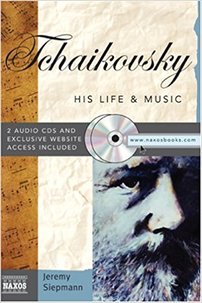 I’ve written a couple sets of variations for the piano over the years – one a set of 12 variations on Jesus Loves the Little Children and another on a Korean folk melody – but I’ve generally looked down on the genre. Variations are a little too easy – you’ve got a tune and you just change a harmony here or give it a slightly different accompaniment there and you have a variation. Too simple. But that was of course before I started playing the Goldberg Variations of Bach. Wow! The Goldberg Variations are an amazing set of variations. But they are not variation on a tune as we would usually expect but on the ground or bass line of the first piece – the Aria. And Bach shows his inexhaustible imagination as he takes that bass line and develops permutation after permutation writing lyrical pieces, jigs, virtuosic showstoppers, to even fugues. And of course there are the masterful Enigma Variations by Sir Edward Elgar. Written for his friends these variations explore various moods, colors, and textures and at one moment touch the heart with melancholy and the next inspire a grand nobility. Those are only two examples of a wide variety of musical variations ever written but music is not the only place we see variation. In fact variety is all around us. What is a great dane to a dachshund other than another variation of the dog family. Or a lion to a common house cat but a variation of the cat family. And what about planets, stars, oceans, rivers, trees, clouds, and snowflakes. They are all variations on a particular subject. And what is a variation? It is something that has something in common with another object or being but also has key differences at the same time. So a leaf is related to all leaves as it is produced by a living plant and is organic but different at the same time from other leaves in both shape, size, and color. It is similar enough to categorize together but different enough to bring variety and enjoyment to us. And every human on the this planet is similar enough to other humans that even a baby can tell the difference between say a human and an animal but yet each and every human on earth is distinct and different and is fearfully and wonderfully made by the Creator. And we are made in the image of God – we are in fact a variation, if you will, of God-ness. And what are children but variations of their parents – taking similarities but also coming out distinctly their own. So all of this meditation on variations to announce that I am working on a set of variations on the tune, Terra Patris, or rather the hymn This Is My Father’s World. I started back at the beginning of 2017 and I plan on writing them all this year before I take them and develop them into a full scale orchestral piece (something I have never done before). The process has been a lot of fun but it is hard after a while to come up with fresh ideas without resorting to cliches (a march variation, a waltz variation, a alberti bass variation, etc…). I plan on adding new scores of my variations on this website and the first I want to show is my Variation VIII. It is a slightly jazzy and laid back variation. My plan is to keep writing variations, eventually develop a two piano version of the work, and then orchestrate that. Many composers have written a two piano version first before orchestrating so I thought that would be a smart choice for me as well. This also ensures that the musical structure and harmonies are sound before I begin orchestrating. Variations are all around us and are there for our enjoyment from God. Appreciate them and create some of your own.
4 Comments
 INTRO Getting into classical music can be difficult – there is so much music it is hard to know where to start. And once you do find a piece of music you enjoy or a composer you are interested in it can be difficult to know where to go from there. That’s why I am so excited about the Naxos, His Life and Music, series of books. Naxos, a well know publisher of recorded music, has published a series of biographies of famous classical composers. But they are not just books but a multimedia tool for total immersion into the life and times of the composer. Each book comes with two music CDs that give a fascinating overview of the composer’s compositions throughout his life in various mediums of expression (chamber music, opera, songs, symphonies, etc…). Also, with the purchase of the book you get a password that allows you to access a website that has the full versions of the samples on the two CDs along with various other goodies. And one of the best parts of the series is each book is very inexpensive. For instance the Beethoven: His Life and Music was only $5.99 at Half Price Books and you can get the same book new on Amazon right now for $6.14 and used for as low as $1.87! Who can find a good book for that cheap let alone all that comes with it? So far the series contains the biographies of Mozart, Beethoven, Chopin, Mahler, Tchaikovsky, Dvorak, Wagner, Puccini, Mendelssohn, and Haydn. Let’s take a quick look at what you get with one of these books starting with the book itself. BOOK Each book is a sturdily made paperback, approximately 8 x 6 inches in size, and has around 200 pages. There is a CD within the front and back cover which, when taken out, make the book much lighter and easier to hold. Within you not only find a full biography of the composer accompanied by wonderful photos (or paintings) of people, places, manuscripts, and letters but you get the password to the dedicated website as well. In the back of the book you have a collection of short bio’s of all the people in the composers life, a bibliography, a glossary of musical terms, an annotated list of the pieces on the CDs and much more. Now the biographies are well-written, easy to read, and not too technical. They really immerse you in the time period of the composer as you see each step in their life from child to struggling musician to confident master. But these are not hagiographies where the composer seems to have a perennial halo on his head. Instead we see the good and bad of each composer’s character and the inevitable ups and downs of their relationships and careers. For instance, with Tchaikovsky we see the mysterious relationship he had with his patroness Nadezhda von Meck and his disastrous and inexplicable marriage to Antonia Milyukova. Also, when you reach the point in each of the composer’s lives when they composed a landmark piece there is an icon on the side margin of the page that tells you where you can find an excerpt on one of the CDs. This is were the immersion really begins to take hold. So let’s take a look at what you will find on the recordings. CDS Each one of the two CDs has over an hours worth of music by world renowned musicians. That is over two hours of music. But what is on them is what makes them so special. Usually when you buy a CD of a composers music you get music in a specific genre. Say you buy a Mozart CD. You may buy one that has a couple of his symphonies like symphony 40 and 41. Or you may buy one of one of his operas like, the Magic Flute. Or you may buy one that has several concertos on it like his horn or flute concertos. And of course you can buy a CD touted as “The Best of Mozart” or “Mozart’s Greatest Hits” that compiles either complete or partial pieces from several genres of his most well known works. But all of these options can be frustrating if you really want to get an overview of the composer’s life and work. Even the “Best of...” category only gives you pieces that you already know (Eine Kleine Nachtmusik, Turkish March, Jupiter Symphony, Rondo Alla Turca, various opera arias, etc…) and really moves you no closer to getting at the depth or breadth of the composer. This is where the Naxos CDs excell. They have various genres represented like the “Best of...” CDs but they showcase less known works by the composer (though important works), throughout his career, and in a wider range of genres. For instance, when I started listening to Puccini discs in the series my preconception was that they would just have famous aria after aria on them. Instead, to my pleasant surprise, many of the pieces were instrumental and where there were arias they were in context together with several other arias and instrumental pieces from the same opera. As I listened to the CDs in the series I could hear the experimentation and growth of each composer and see how they approached each genre. It is a fascinating way to get to know the composer. The selections on the discs remind me of one of those chocolate samplers you might enjoy but without the inevitable, unappetizing, “surprise” pieces. If the CDs in this series whet one’s appetite for the composer’s music the dedicated website serves up the full course meal. WEBSITE I have to confess that only recently did I access the free websites and that was after reading three books in the series and listening to their accompanying discs. What the websites boast and deliver are the full works of the excerpts on the CDs (full operas, symphonies, chamber works, song cycles, etc…), music excerpts from the composer’s contemporaries to put the composer in perspective of the whole of the classical music world, and a fascinating timeline that shows events in the composers life alongside events in the world in the areas of the arts, culture and politics. That last feature blew me away. I was seeing for the first time, in my experience, all these events that I knew from world history and see how they each connected to the life and music of this famous composer. And that was a revelation. In an information age such as ours it doesn’t seem like it would be a revelation but the fact is a lot of our information is just that, information, and it hasn’t been synthesized or processed and thoughtfully connected to other streams of information. Here, in one of these timelines, you can see the stream of a composer’s life intersect with the streams of art, culture, and politics and the immersion process goes a bit deeper. You are no longer reading history but experiencing it. No longer a spectator but a participant. CONCLUSION I may be a little overboard in my appraisal of the Naxos, His Life and Music, series but as a composer, and lover of books and biographies, I am truly in awe. When Naxos could have given us the books alone, or the CDs alone, or even the websites alone, they have offered it together as a complete package and at an affordable price. Thank you Naxos. Whether you are a classical music lover of many years, or just beginning to test the waters, please take a look at this series. I believe hours of beauty and enjoyment await you. |
AuthorMy name is Jeff Howard. I am a husband, father, pastor, and musician. ArchivesCategories
|
 RSS Feed
RSS Feed
